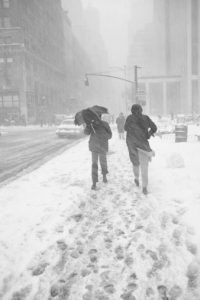Danielle Rennard, Staff Writer

Wacky weather has led scientists to believe that climate changes have increased the chances for more severe weather patterns. Rather than speaking about the ill-fated weather headlines from last year, scientists have been discussing the impact climate change is expected to have on this year’s weather forecasts. The surprising severe weather has left everyone wondering what could possibly happen next.
At the annual American Association for the Advancement of Science meeting in Boston, it was stated that the probable extreme weather events will most likely vary from region to region. Specifically across the United States, heat waves have become more frequent. Donald Wuebbles, a geoscientist at the University of Illinois at Urbana-Champaign, said that western regions have set records for the number of heat wave events since 2000. But in contrast, the Midwest and Northeast have had a 45 to 74 percent increase of rainfall which has been the heaviest rainfall recorded since 1950.
Wuebbles states, “The science is clear and convincing that climate change is happening and it’s happening rapidly. There’s no debate within the science community… about the changes occurring in the Earth’s climate and the fact that these changes are occurring in response to human activities.”
Just in 2011 and 2012 alone, major heat waves, floods, droughts, severe storms, tornadoes, hurricanes and wildfires caused around $120 billion in damages. Wuebbles suggests that those were some of the most expensive weather events in the country’s history, according to the National Oceanic and Atmospheric Administration Climactic Data Center. Also, as asserted by John Nielson-Gammon, Texas State’s climatologist at Texas A&M University in College Station, the extreme drought that afflicted Texas in 2011 has spread to New Mexico, Louisiana, Oklahoma and northern Mexico.
In Obama’s State of the Union address he declared that the time is right to address climate change, and he would edge Congress to make changes if needed. He proposed new regulations for coal-burning power plants and promised to promote energy efficiency and out their efforts into cleaner technologies. But is it too late for these changes? Has the president waited too long to address climate change and finally do something about it?
Long Island is one of the areas of the United States that has been impacted by severe and unusual weather. With Hurricane Sandy devastating areas across the island, and more recently the snow storm, Long Islanders are questioning when the weather will give them a break.
Researchers are relieved that Obama is addressing climate change on his agenda, but they simply want the public to have accurate, scientifically sound information and not just simplified points.
Leave a Reply